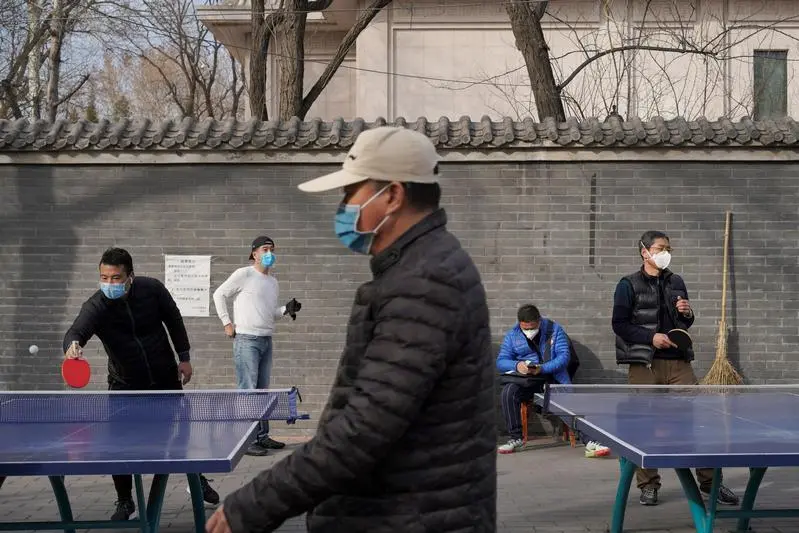PHOTO
HONG KONG - Donations to help China combat the coronavirus are pouring in, but local efforts are raising the bar. Some 300 companies are borrowing to soften the economic blow, but also to help contain the outbreak. Bottom lines may be affected.
The epidemic, which emerged in Wuhan, Hubei, late last year, has already claimed over 2,000 lives and wreaked havoc across industries. Buyout firm Blackstone, billionaire Ray Dalio and his hedge fund firm Bridgewater, and multinationals such as Microsoft, are among the latest to pledge financial support. Even Canadian pop star Justin Beiber is pitching in.
China’s tech bosses are going further. Smartphone-maker Xiaomi, led by Hubei native Lei Jun, is seeking 5 billion yuan ($716 million) in loans to produce and sell medical equipment like surgical masks and thermometers, Reuters reports. Meanwhile, Meituan Dianping, the $77 billion takeout giant, is also tapping banks to help finance free food and deliveries, while software specialists including facial recognition start-up Megvii and cybersecurity outfit Qihoo 360 want to use debt to develop apps and technology to track and contain the virus, according to the same report.
The assistance is notable for China. Charitable donations totalled just over $23 billion in 2017, according to the Asian Venture Philanthropy Network, or just 0.2% of GDP. Domestic giving in the United States equalled around 2% of its economy. A spate of scandals has also led to deep public mistrust toward charities in the country.
The longer-term impact on profit will be uncertain. Takeout apps are trialing so-called contactless deliveries and grocery shopping sites have seen a surge in orders. But with many restaurants closed, and Meituan waiving some commissions on its app, analysts at Bernstein reckon the company’s food delivery business, which only turned its first quarterly profit last year, may fall back into the red in the three months to March. This month, Xiaomi flagged its first-quarter sales will be hit, with industry tracker Canalys warning Chinese smartphone shipments could halve from the same period last year. Unlike one-off donations, a shift to making medical equipment may prove a costly distraction.
Moreover, it is far from assured that demand for handsets and the like will bounce back immediately after the virus is contained. Companies and shareholders may eventually prefer less creative forms of altruism.
CONTEXT NEWS
- More than 300 Chinese companies are seeking bank loans totalling at least 57.4 billion yuan ($8.2 billion) to help soften the impact of the coronavirus outbreak, Reuters reported on Feb. 10, citing unnamed sources. Chinese handset maker Xiaomi, food delivery company Meituan Dianping and Qihoo 360 are among those seeking loans, according to two lists of company names sent to Beijing banks by the city government’s finance bureau that the sources had seen.
- The coronavirus has killed 2,442 people in China, which has reported 76,936 cases, as of Feb. 22.
- Alibaba said on Feb. 6 that it launched a global B2B platform to connect medical-goods suppliers with frontline medical personnel trying to stop the spread of the coronavirus.
(Editing by Robyn Mak and Katrina Hamlin)
© Reuters News 2020




















